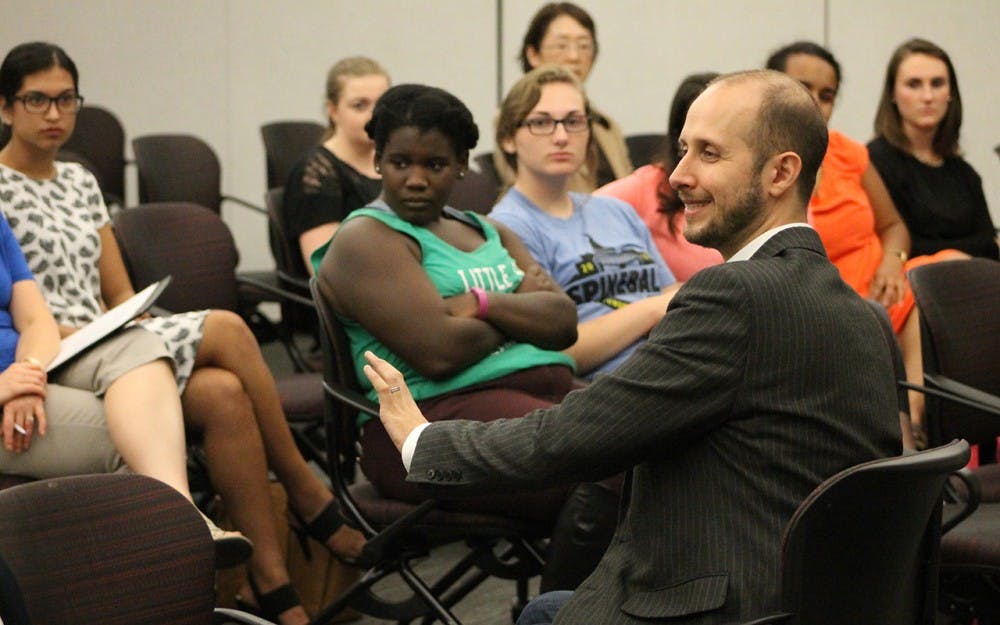Men are the problem in pay equity and men need to be the solution, Microsoft Startup Growth Partners Director Matt Wallaert said Tuesday evening in Godfrey Corporate and Graduate Center while speaking to a group of more than 30 students.
IU Center of Excellence for Women in Technology and the new Women in Economics student group collaborated to bring Wallaert, a behavioral scientist who specializes in making products that change behavior, to IU to discuss problems with and solutions to the gender pay gap.
“You brought me to talk about gender equity, and I’m talking to a bunch of women,” Wallaert said to laughs from the crowd.
Wallaert built getraised.com, a resource designed to help women in the process of negotiating pay raises. The website has helped women gain a total of $2.3 billion in raises, Wallaert said.
The first step women who use getraised.com take is entering data to find out if they are being underpaid.
Wallaert said women are underpaid by 30 percent on average. Latina women are underpaid by 50 percent, black women by 35 percent and white women by 20 percent.
“The first thing you have to do — and get other women to do — is to check their salary,” Wallaert said.
The second step of the process helps women create a plan to ask their bosses for a raise and includes figuring out how much of a raise they want when talking to human resource employees.
“If you ask for a 3-percent raise, almost every HR person will be like, ‘Sure,’” Wallaert said. “Twelve percent will be an almost automatic no.”
Wallaert said he recommends asking for an 8-percent raise because it is the largest raise that still has a high likelihood of actually occurring.
Wallaert said women are socialized into making emotional appeals — for example, saying they need more money to take care of their son — when asking for raises.
By contrast, men are socialized into making appeals that are business-based. Wallaert said women need to make appeals that use data and facts to prove their value to the company.
Wallaert said women should assess what they have done for the company in the last six months and what they will do in the coming months and added they should set up negotiations with bosses in a conference room with a whiteboard rather than talking over a desk.
Karis Neufeld, an economics major, asked Wallaert what to do when interviewing for a first job where there is no data for performance in the past six months.
“What you want to show them is how you’re different from their normal hire,” Wallaert said. He recommended talking about internships, research and interesting side projects as much as possible.
Brett Wiley, a graduate student in the School of Public and Environmental Affairs, asked Wallaert if he was suggesting women need to act more like men in order to negotiate raises successfully.
Wallaert enthusiastically refuted this suggestion.
“Communicating with data and logic is not inherently male,” Wallaert said. “With compensation, we happen to know that talking with data is more effective.”






